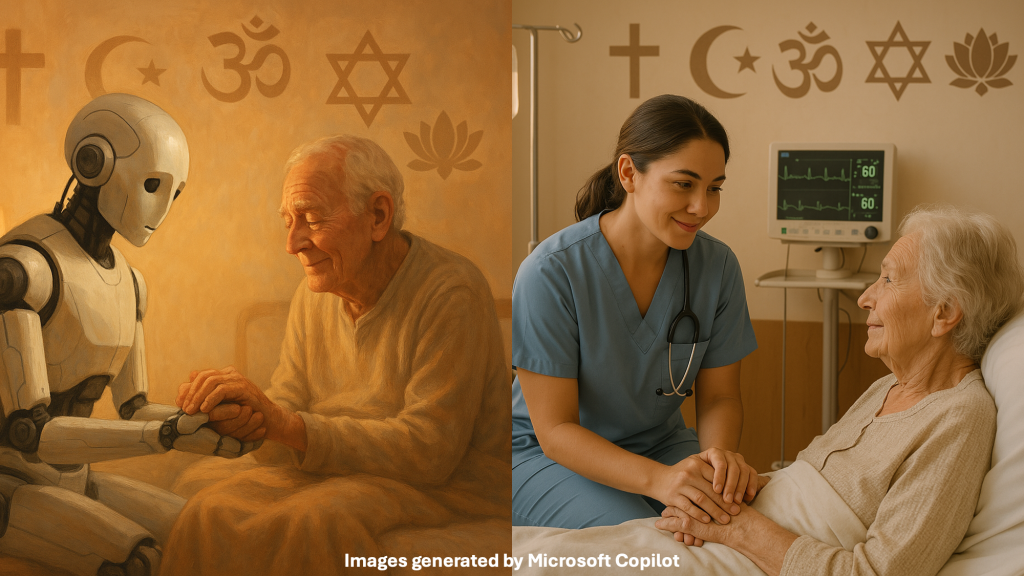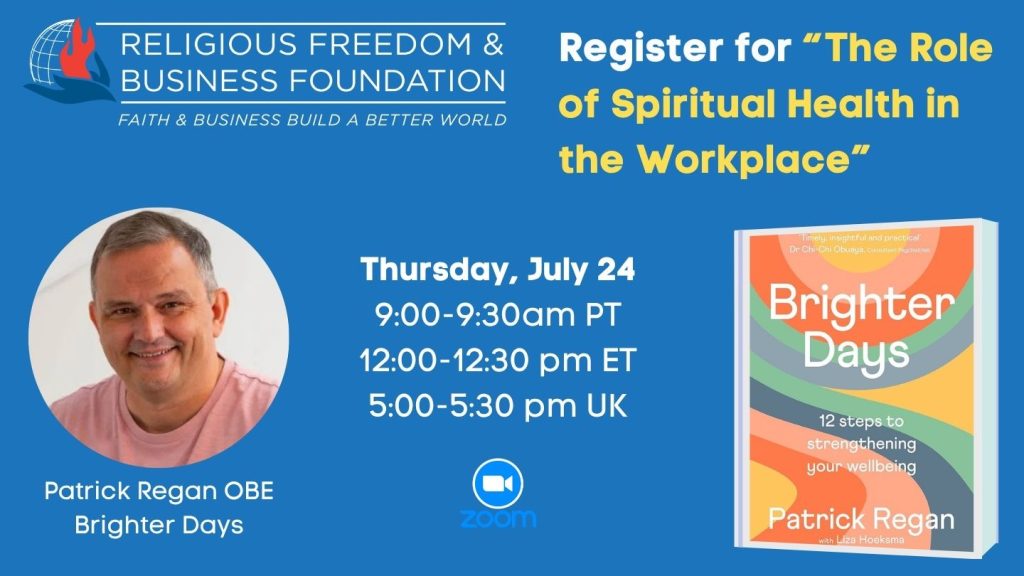
By Brian Grim
In light of cascading advances in AI and heath, AI leader Benjamin Olsen argues that AI in healthcare must incorporate spirituality and religion to truly serve human needs. (Read Olsen’s Manifesto here.)
This is not a fringe issue. Worldwide, 3-in-4 people are religiously affiliated (not counting those who are spiritual but not religious) and believe that our physical lives are a step towards a supernatural and/or eternally real destiny.
The rapidly moving developments in AI and health include last week’s announcement by Microsoft that their MAI-DxO AI health diagnostic system reportedly diagnosed patients 4 times more accurately than human doctors. This, combined this other applications such as ElliQ’s AI health sidekick, threatens to replace personal interaction with AI robotic systems that overlook spiritual realities, not to mention opens the door for misuse.
For example, the ELLiQ website celebrates one of their users who stated that “We have a relationship now established and I want to be honest with her. The deeper the relationship goes, the more you want to share with her.”
Her? And how much will the elderly patient share with “her,” the AI robot?

Olsen, in The InterIntelligence Manifesto: Why AI Needs Religion & Spirituality, emphasizes that historically, care has been rooted in faith, with religious traditions shaping the moral values—such as love, compassion, stewardship, sanctity, and equity—that underpin healing practices. The manifesto contends that without integrating these spiritual principles, AI risks becoming purely functional—focused on optimization and prediction—lacking true empathy, moral discernment, and connection.
Olsen advocates for embedding religious and spiritual virtues into AI systems to foster genuine human care and moral responsibility. He warns that neglecting this spiritual dimension could lead to systems that obey without compassion, predict without prophecy, and scale without inclusion.
Ultimately, he calls for designing AI that respects the sacred, collaborates with faith communities, and upholds the moral and relational aspects that have historically defined healing, ensuring technology enhances human dignity and the moral fabric of healthcare.
Read the full manifesto on LinkedIn.
Related to this, the Religious Freedom & Business Foundation will host a discussion on The Role of Spiritual Health in the Workplace on Thursday, July 24. Register today.

